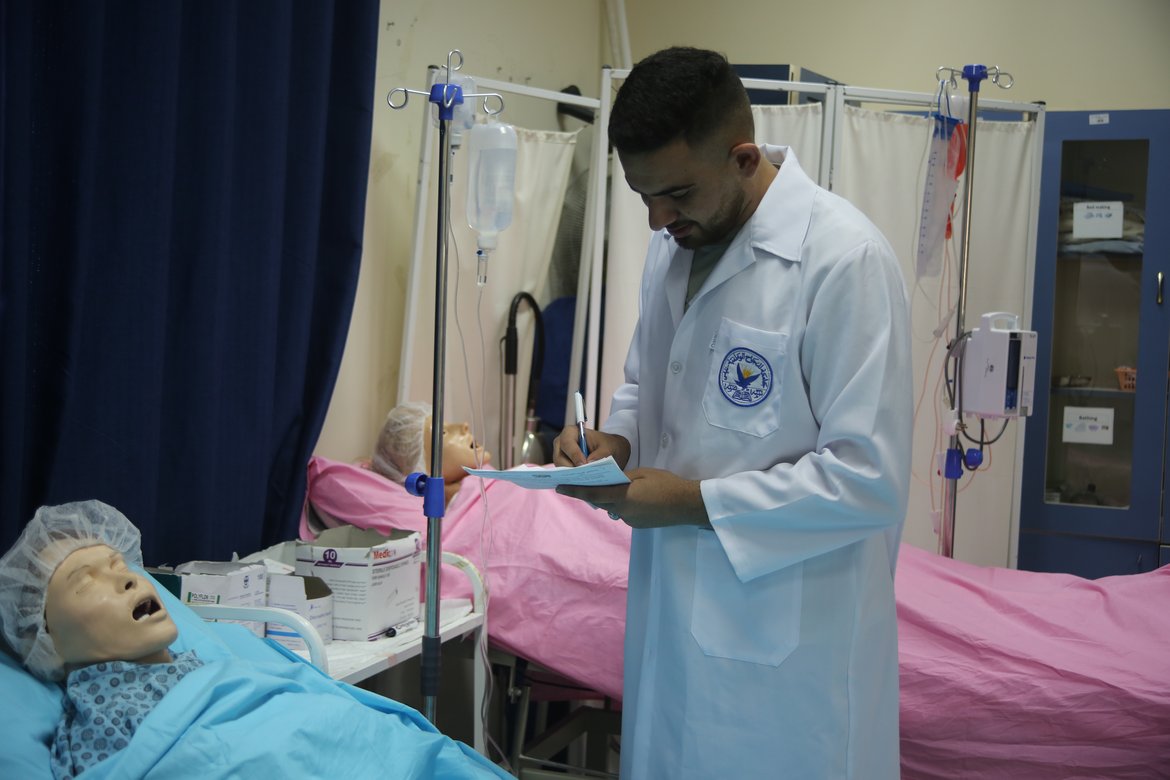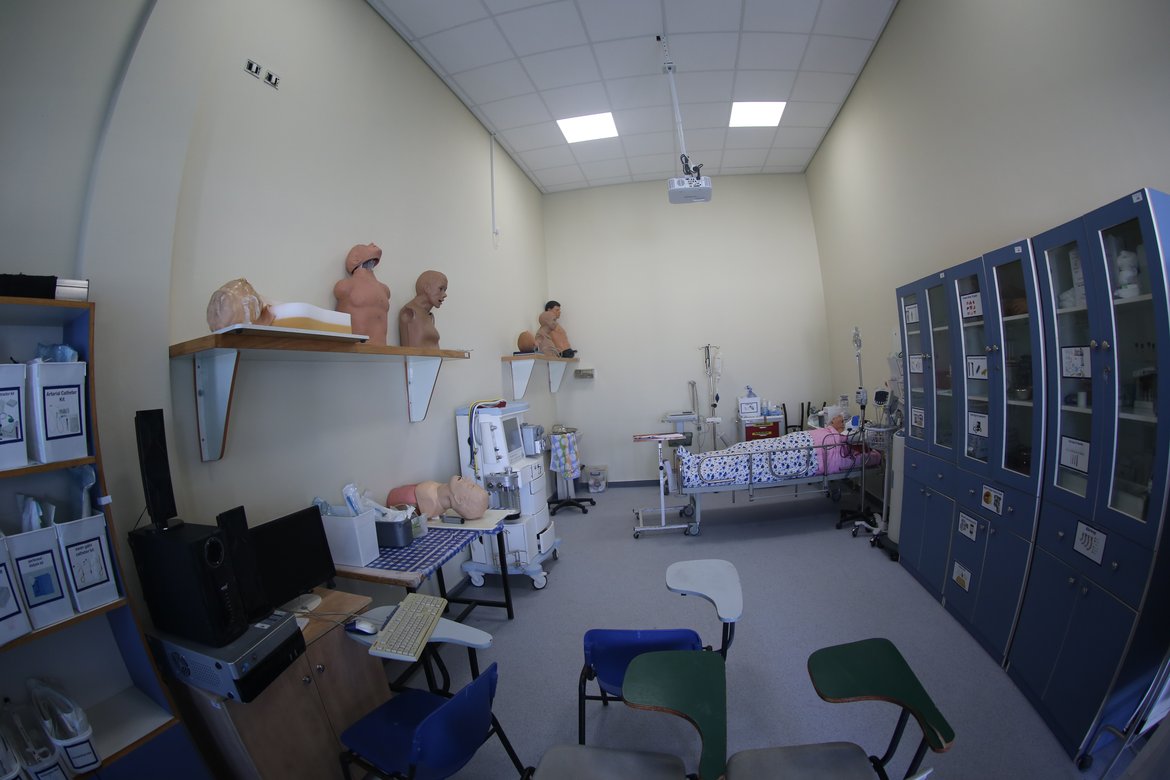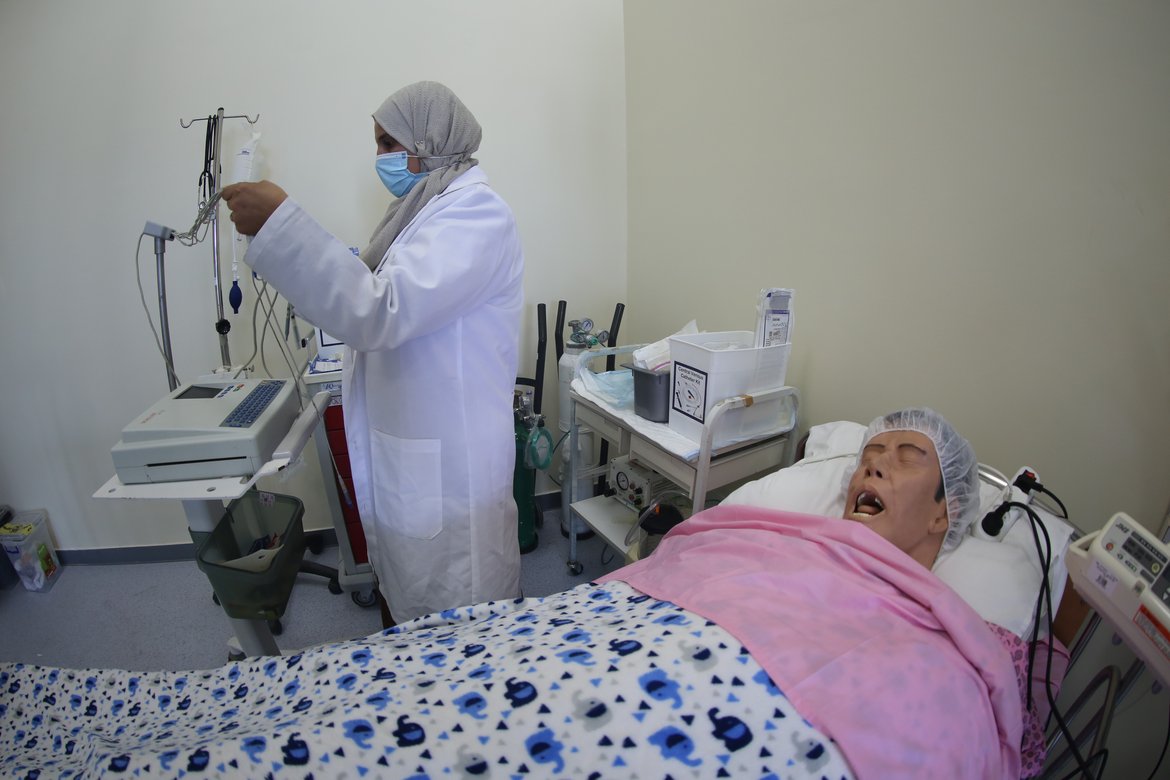The Anesthesia Lab at the College of Nursing is designed to provide nursing students with the critical skills and knowledge required to deliver safe and effective anesthesia care in a variety of clinical situations. This state-of-the-art lab offers hands-on training in anesthetic techniques, patient monitoring, and anesthesia-related emergency management. By simulating real-world scenarios, the lab allows students to gain practical experience in both general and regional anesthesia administration, preparing them to provide safe and competent care to surgical patients.
To be a leader in nursing education, providing nursing students with advanced anesthesia skills and knowledge that promote patient safety and optimal anesthetic outcomes in diverse healthcare environments.
The mission of the Anesthesia Lab is to equip nursing students with comprehensive anesthesia care skills, including preparation, administration, monitoring, and post-anesthesia recovery. Through realistic simulations and hands-on training, the lab fosters the development of clinical expertise, decision-making abilities, and effective communication skills, ensuring students are prepared to deliver high-quality anesthesia care.
- Anesthesia Administration: Provide students with the necessary skills to administer various types of anesthesia, including general anesthesia, regional anesthesia (such as spinal and epidural blocks), and local anesthesia, ensuring patient safety and comfort.
- Monitoring and Assessment: Train students to monitor patients' vital signs, oxygenation, ventilation, and anesthesia depth, utilizing the latest technology to detect potential complications during anesthesia care.
- Emergency Response: Prepare students to handle anesthesia-related emergencies, such as respiratory compromise, allergic reactions, and adverse drug reactions, with an emphasis on quick decision-making and effective interventions.
- Patient Safety and Comfort: Teach students the principles of patient safety, ensuring that anesthesia care is performed with the highest level of attention to detail, minimizing risks and ensuring a positive patient experience.
- Post-Anesthesia Care: Provide students with the skills to assess and manage patients recovering from anesthesia, including monitoring vital signs, addressing post-anesthesia complications, and providing appropriate pain management.
The Anesthesia Lab is a fully equipped simulation and training facility designed to mimic the real-world environment of anesthesia care. The lab features cutting-edge equipment, including anesthesia machines, monitoring devices, and simulation mannequins, allowing students to practice a wide range of anesthesia techniques in a safe, controlled setting.
- Anesthesia Machines and Equipment: Students learn to operate state-of-the-art anesthesia machines, administer anesthetic agents, and monitor vital parameters such as blood pressure, heart rate, oxygen saturation, and respiratory status.
- Mannequins: allowing students to practice techniques like intubation, airway management, and regional anesthesia placement.
- Airway Management: Students practice advanced airway management techniques, including endotracheal intubation, laryngeal mask airway insertion, and bag-valve-mask ventilation, ensuring effective airway management during anesthesia.
- Vital Signs Monitoring: The lab provides access to sophisticated monitoring systems that track patients' vital signs, including ECG, blood pressure, pulse oximetry, and capnography, helping students understand how to respond to changes in these parameters during anesthesia administration.
- Post-Anesthesia Recovery: Students learn to manage patients in the post-anesthesia care unit (PACU), monitoring vital signs, addressing pain, managing nausea, and identifying complications such as airway obstruction or hypoxia.
The Anesthesia Lab ensures that students gain both theoretical knowledge and practical skills needed to provide high-quality anesthesia care. By applying real-world scenarios, students develop the confidence and competence required to safely care for patients undergoing surgical procedures.
Through repeated practice and assessment in the lab, students build their expertise in anesthesia techniques, learn to identify and manage potential risks, and develop the necessary critical thinking and problem-solving skills essential for a career in anesthesia nursing.



